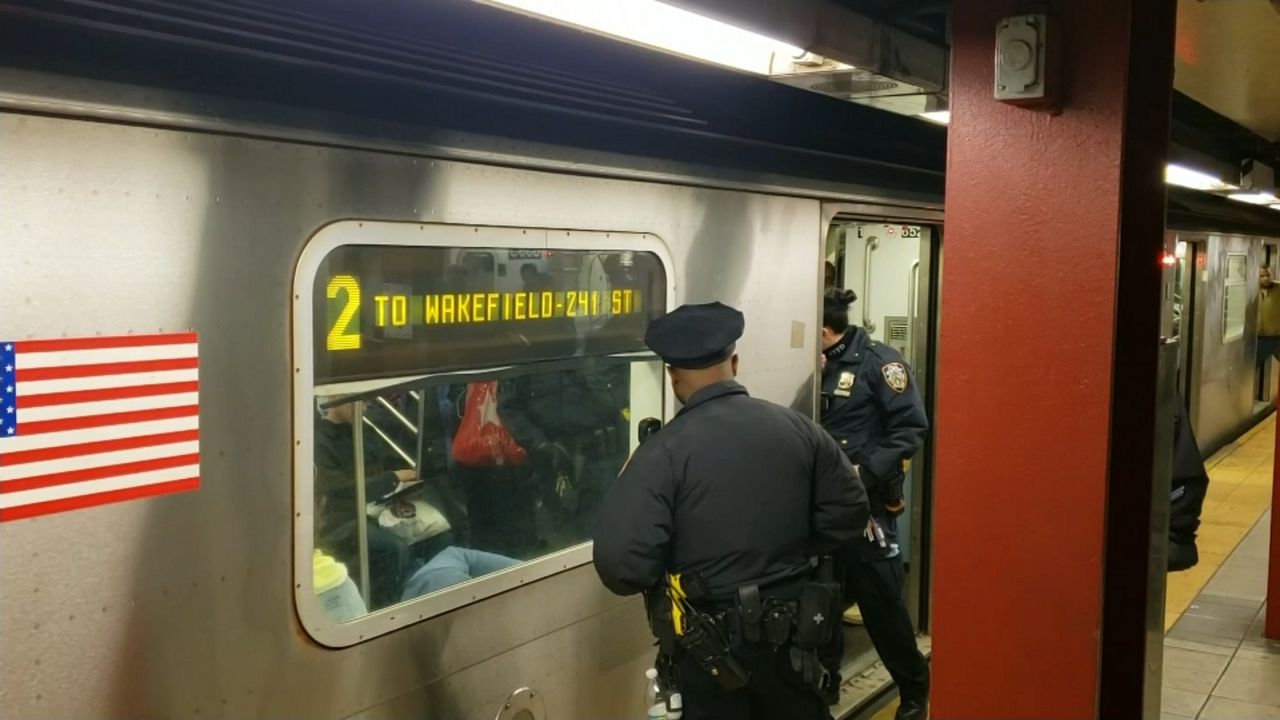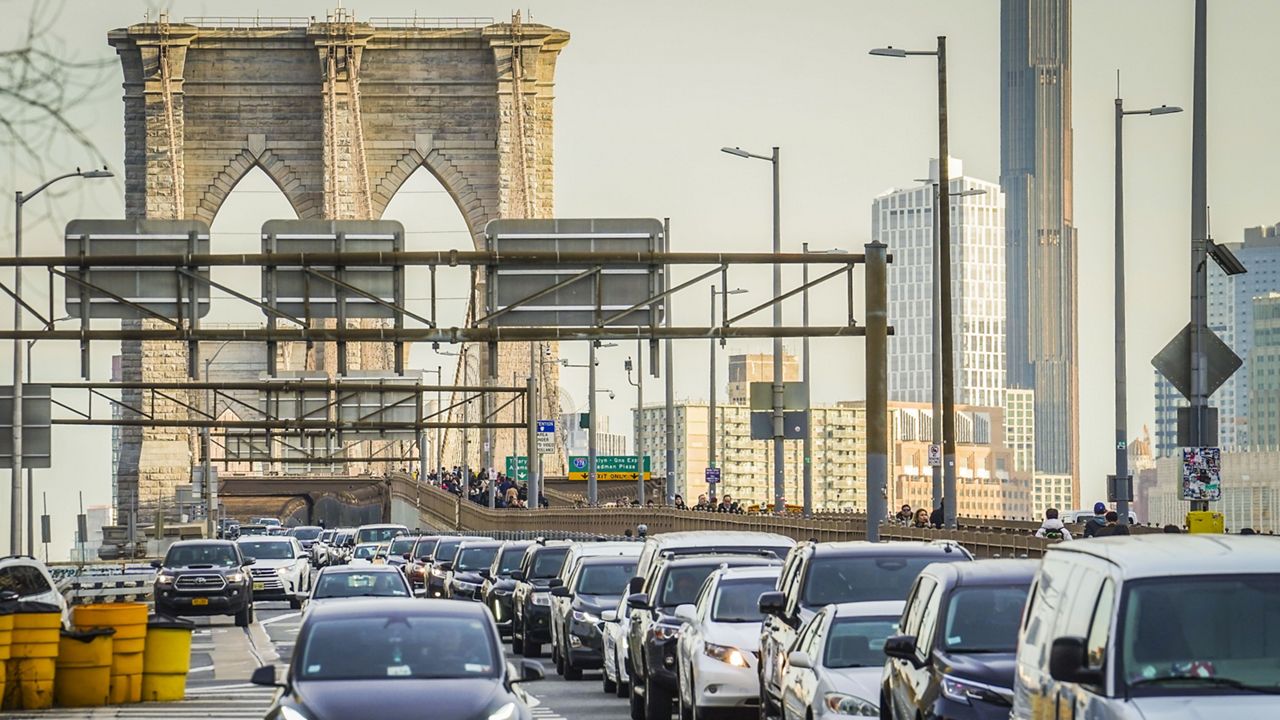The city’s Department of Transportation has finalized its redesign of McGuinness Boulevard in Greenpoint, Brooklyn after extensive study, but advocates say the new plan does not prioritize street safety.
The final proposal extends a redesign that half of the boulevard received last year south of Calyer Street, to Meeker Avenue.
Under the new plan, both lanes will remain open to traffic in each direction, but the right lanes in both directions will convert to parking from 7 p.m. to 7 a.m., condensing the four-lane roadway to two lanes of traffic overnight.
The DOT says bike lanes will be separated, but only protected at intersections, by jersey barriers.
Advocates and some local elected officials, however, have voiced opposition to the new plan, saying cars illegally park in the bike lanes along the stretch of the boulevard the DOT redesigned last year, pushing cyclists into dangerously fast car and truck traffic.
Members of the group Make McGuinness Safe have been calling for traffic-slowing initiatives over the last two years, like bike lanes protected by parking.
A group of elected officials including Rep. Nydia Velázquez, Public Advocate Jumaane Williams, Comptroller Brad Lander and Brooklyn Borough President Antonio Reynoso decried the new plan in a joint statement.
“Greenpoint residents have demanded that Mayor Adams finally address the deadly conditions on McGuinness Boulevard and make our community safer, but he ignored us,” they said.
“After repeatedly changing his mind and undermining DOT’s evidence-based redesign, Mayor Adams is going forward with a plan that fails Greenpoint by preserving the most dangerous elements of this roadway that runs through the middle of our community,” they added. “We will not stop fighting until we successfully prioritize the safety of our neighbors above all else.”
Elizabeth Adams, interim co-executive director of transit advocacy group Transportation Alternatives, also denounced the plan.
“From McGuinness to Fordham Road to Bedford Avenue, it’s clear that Mayor Adams has no interest in keeping people safe from traffic violence even during a particularly deadly year,” she said, in part, in a statement. “We will continue to fight for a full, comprehensive street safety redesign on McGuinness Boulevard.”
In a statement, a spokesperson for the DOT said the redesign “will make this corridor much safer for everyone, including drivers, pedestrians, and cyclists.”
“Based on community feedback, NYC DOT will be extending the protected bike lane from Calyer Street to Meeker Avenue while also delivering a new network of bike lanes, better connecting cyclists to Meeker Avenue and points south, and adding sidewalk extensions at streets intersecting McGuinness Boulevard,” the spokesperson said.
Advocates with Make McGuinness Safe say they are not done fighting, and hope to push the city to reconsider the new plan. The DOT, however, aims to start work in September.
McGuinness Boulevard has long been considered a dangerous corridor for both pedestrians and cyclists.
At least 150 people have been injured on the boulevard since July 2019, according to data from Transportation Alternatives.
The move is an uncertain fate for one Brooklyn business.
"Since this stuff was built here, I'm not gonna lie, it has been terrible," Pascal Ogbunibala, who works at the hardware store Workmate on the corner of McGuinness Boulevard and Calyer Street, said.
He says after the DOT redesigned a stretch of McGuinness Boulevard, from Calyer Street to the Pulaski Bridge last year, the business suffered due to a lack of parking.
"Nobody comes here anymore," Ogbunibala said.




_LLV_DNT_McGuinness_Blvd_Final_Plan_CLEAN_130737731_2934?wid=320&hei=180&$wide-bg$)

_PKG_DOT_BQE_Improvements_CG_131225588_368)

